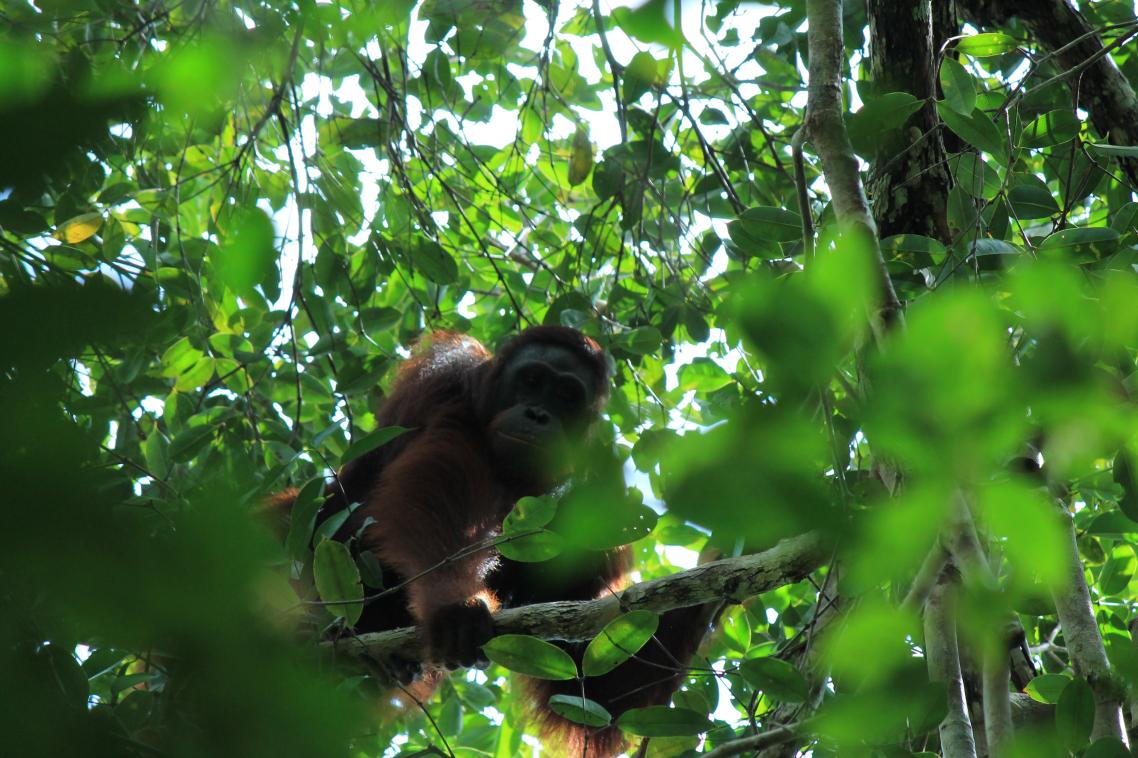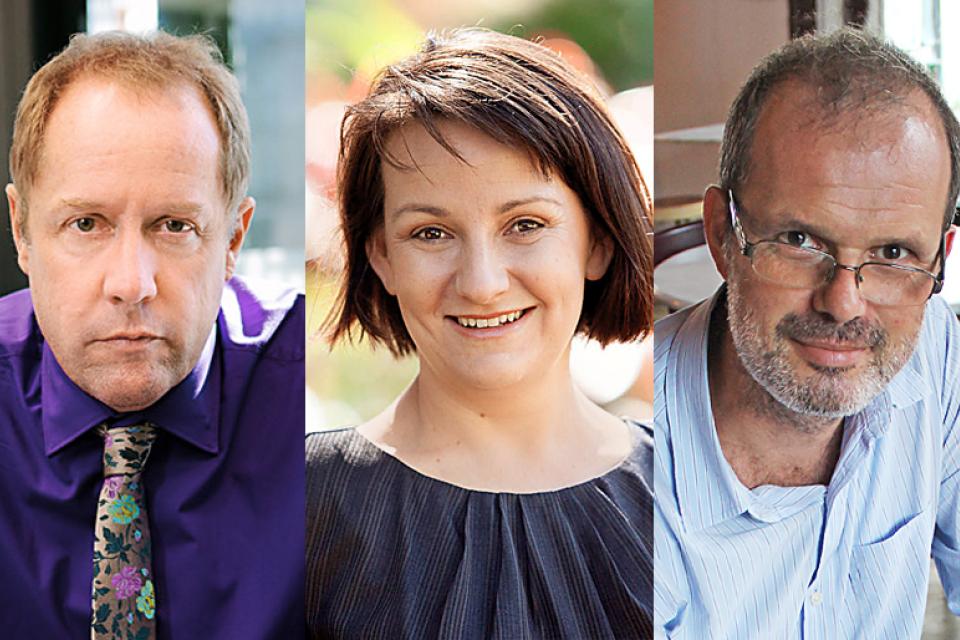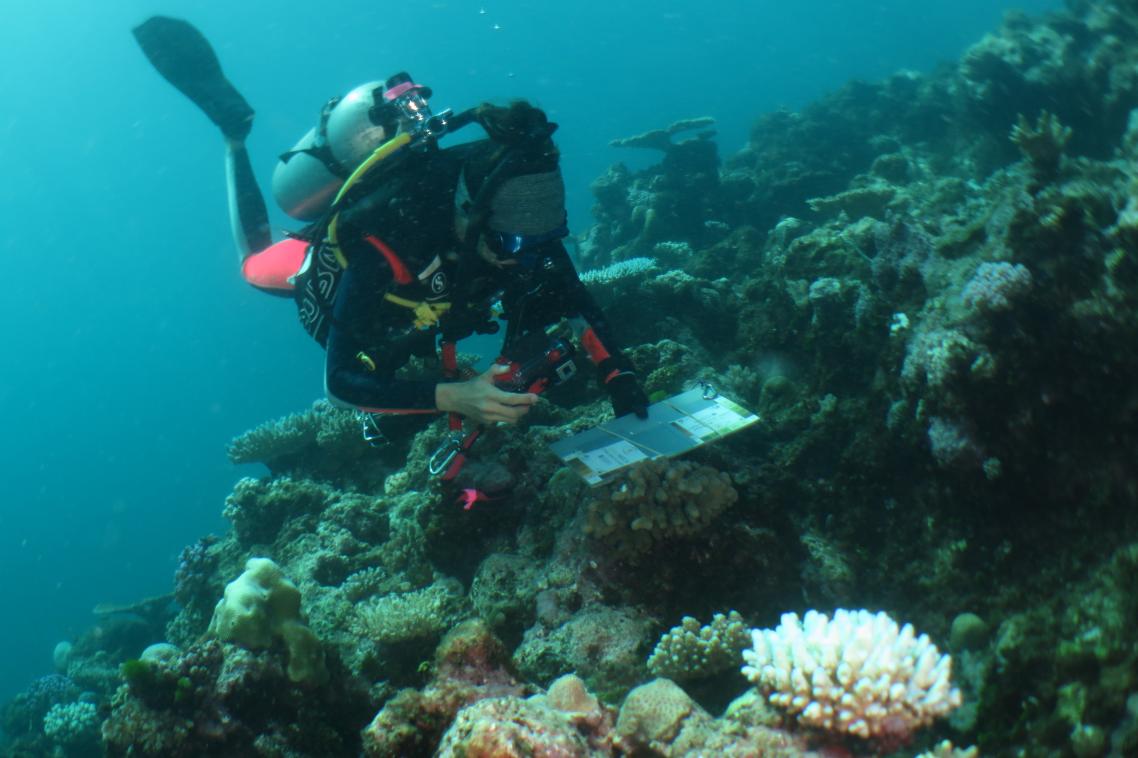Environmental researchers win Mahathir Science Award

Work by a trio of University of Queensland researchers and their teams to help save tropical habitats has prompted government policy changes in Malaysia, Indonesia and around the world.
The researchers’ work advancing natural resource management knowledge in the tropics has won them Malaysia’s 2016 Mahathir Science Award.
Professor Hugh Possingham, Professor Kerrie Wilson and Dr Erik Meijaard from the Australian Research Council Centre of Excellence for Environmental Decisions (CEED) are the first research group – rather than an individual -- to win the award.
CEED director Professor Wilson said she and her colleagues had led extensive research in environmental decision science, specifically its application in Borneo but also in other tropical regions.
“The research group is the driving force behind Borneo Futures, a research network of 350 collaborating scientists who use social, economic and ecological data to improve natural resource management decision-making on Borneo,” Professor Wilson said.

Dr Meijaard said examples included modelling orangutan population trends, which resulted in the listing of the Borneo orangutan as critically endangered, and new policies and plans on protecting the species.
“Indonesia’s new policies on fire prevention and peat management also were influenced by our group’s research,” he said.
Professor Wilson said the group's success owed much to the development of Marxan, a conservation planning software tool which has helped managers, policy-makers and non-government organisations make better decisions about natural resource management.
“Marxan is now used by more than 6000 users worldwide and is referred to in thousands of scientific papers, books and reports,” she said.
“We are grateful to the Mahathir Science Foundation and to the support from the Indonesian and Malaysian governments, which have incorporated elements of our research findings into their decision-making, seeking to balance economic development and social and environmental costs” Professor Wilson said.
The CEED group was announced as winner of the Mahathir prize followed a stringent vetting and shortlisting process by Academy of Sciences Malaysia (ASM) Fellows, and an International Advisory Panel.
The Mahathir Science Award recognises scientists, institutions or organisations worldwide for tropical research that improves society's wellbeing.
Award categories are in the fields of Tropical Agriculture, Tropical Architecture and Engineering, Tropical Medicine and Tropical Natural Resources.
Image, above left: Professor Hugh Possingham, Professor Kerrie Wilson and Dr Erik Meijaard.
Media: Kerrie Wilson, +61 7 3365 2829, k.wilson2@uq.edu.au; Erik Meijaard, +62 812 551 4006, emeijaard@gmail.com.
Related articles

Superconducting germanium made with industry-compatible methods

Under the surface: how genetics could save the Great Barrier Reef
Media contact
UQ Communications
communications@uq.edu.au
+61 429 056 139
